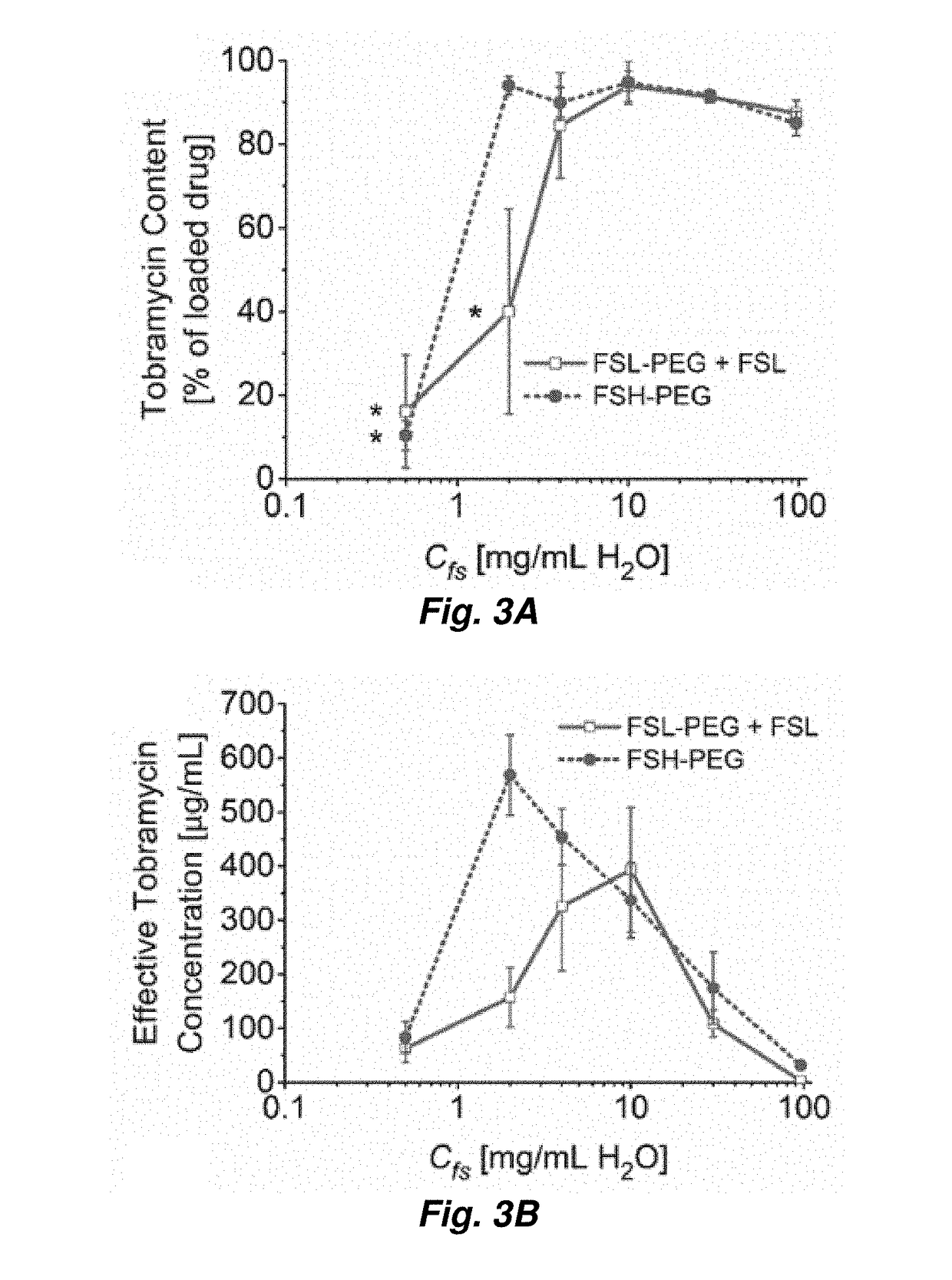Emulsions for Intrapulmonary Delivery
a technology of emulsions and pulmonary veins, applied in the field of emulsions, can solve the problems of limited antibiotic diffusion, excessive bacterial elimination, and excessive lung infection treatment, and achieve the effects of reducing the number of bacterial infections
- Summary
- Abstract
- Description
- Claims
- Application Information
AI Technical Summary
Benefits of technology
Problems solved by technology
Method used
Image
Examples
examples
Preparation of Tobramycin Loaded Water-in-PFC Emulsion
[0046]Tobramycin-loaded, water-in-PFC emulsions were prepared as follows. In brief, a mixture of PFC, aqueous tobramycin, and fluorosurfactants was emulsified via sonication (Model S-450D, 20 kHZ, 3.2 mm diameter microtip; Branson Ultrasonics, Danbury, Conn., USA) at 200 W / cm2 for 60 seconds. Emulsion was prepared in 10-mL batches.
[0047]The fluorosurfactants used in this work are perfluoroether-polyethelene glycol (PEG) triblock copolymers synthesized from Krytox 157FS oils (Dupont, Wilmington, Del., USA) as described in M. L. Fabiilli, et al. Pharm Res, 27 (2010) 2753-2765. Two different variations of the triblock copolymer were evaluated in the present study. A low molecular weight perfluoroether (Krytox 157FSL, Mw=2,500 Da, n=13) was used with a relatively large PEG block (Mw=3,350 Da, m=75) (see FIG. 2). This copolymer and its low molecular weight perfluoroether component will subsequently be referred to as FSL-PEG and FSL, r...
PUM
| Property | Measurement | Unit |
|---|---|---|
| Mw | aaaaa | aaaaa |
| surface tension | aaaaa | aaaaa |
| Mw | aaaaa | aaaaa |
Abstract
Description
Claims
Application Information
 Login to View More
Login to View More - R&D
- Intellectual Property
- Life Sciences
- Materials
- Tech Scout
- Unparalleled Data Quality
- Higher Quality Content
- 60% Fewer Hallucinations
Browse by: Latest US Patents, China's latest patents, Technical Efficacy Thesaurus, Application Domain, Technology Topic, Popular Technical Reports.
© 2025 PatSnap. All rights reserved.Legal|Privacy policy|Modern Slavery Act Transparency Statement|Sitemap|About US| Contact US: help@patsnap.com



